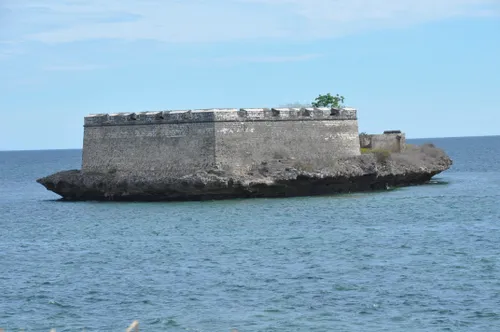Historical Context
Island fortifications have played a pivotal role in military strategy throughout history. From ancient civilizations to modern times, nations have recognized the importance of securing islands to protect coastlines, control sea routes, and project power. The earliest examples can be traced back to the Greeks and Romans, who built fortresses on strategic islands in the Mediterranean. These strongholds served as defensive bulwarks against naval invasions and as bases for launching military campaigns.
Table of Contents
Strategic Importance
The strategic value of the island lies in its ability to control vast maritime areas. Islands, by their very nature, offer a natural barrier against enemy forces. Fortifying these islands enhances their defensive capabilities, making them formidable obstacles to any aggressor. In modern times, with the advent of advanced naval and air technologies, the importance of island fortifications has only increased. Control over key islands can dictate the flow of naval traffic, influence air operations, and provide staging grounds for military forces.
Technological Evolution
The evolution of technology has significantly impacted island fortifications. In the past, these fortifications were primarily made of stone and relied on cannons and muskets for defense. However, with advancements in weaponry and construction techniques, island have become more sophisticated. Modern fortifications are equipped with radar systems, missile batteries, and anti-aircraft defenses, allowing them to detect and neutralize threats from the sea and air. The use of reinforced concrete and underground bunkers has also increased the survivability of these fortifications against modern weapons.
Case Studies
Several historical examples illustrate the effectiveness of island fortifications. During World War II, the Japanese heavily fortified islands in the Pacific, such as Iwo Jima and Okinawa, to prevent Allied forces from advancing. The battles for these islands were some of the fiercest of the war, highlighting the difficulty of overcoming well-fortified positions. Similarly, the British fortifications on the island of Malta played a crucial role in resisting the Axis powers’ attempts to control the Mediterranean.
Modern Applications
In the contemporary world, island fortifications continue to be relevant. Nations with island territories or those located near strategic maritime chokepoints invest heavily in fortifying these areas. The South China Sea is a prime example, where several countries have constructed artificial islands and fortified them to assert control over the region. These fortifications include airstrips, radar installations, and anti-ship missile systems, making them critical components of national defense strategies.
Environmental and Economic Considerations
While island offer significant strategic advantages, they also pose environmental and economic challenges. The construction of these fortifications often requires the alteration of natural landscapes, which can have adverse effects on local ecosystems. The building of artificial islands, in particular, can disrupt marine habitats and lead to the loss of biodiversity. Additionally, maintaining and upgrading these fortifications requires substantial financial resources, which can strain national budgets.
Future Prospects
Looking ahead, the role of island in military strategy is likely to evolve. As technology continues to advance, the nature of warfare will change, and with it, the importance of traditional fortifications. However, islands will remain strategically valuable due to their geographic positions and potential to serve as hubs for various military operations. The development of new technologies, such as unmanned systems and cyber defenses, may lead to the creation of more advanced and resilient fortifications in the future.
Conclusion
Island have been, and will continue to be, a critical aspect of military strategy. Their ability to control key maritime areas, provide defensive strength, and serve as bases for operations makes them indispensable in both historical and modern contexts. While challenges related to the environment and costs exist, the strategic benefits of these fortifications cannot be ignored. As global security dynamics evolve, so too will the design and function of island fortifications, ensuring their relevance in the years to come.








